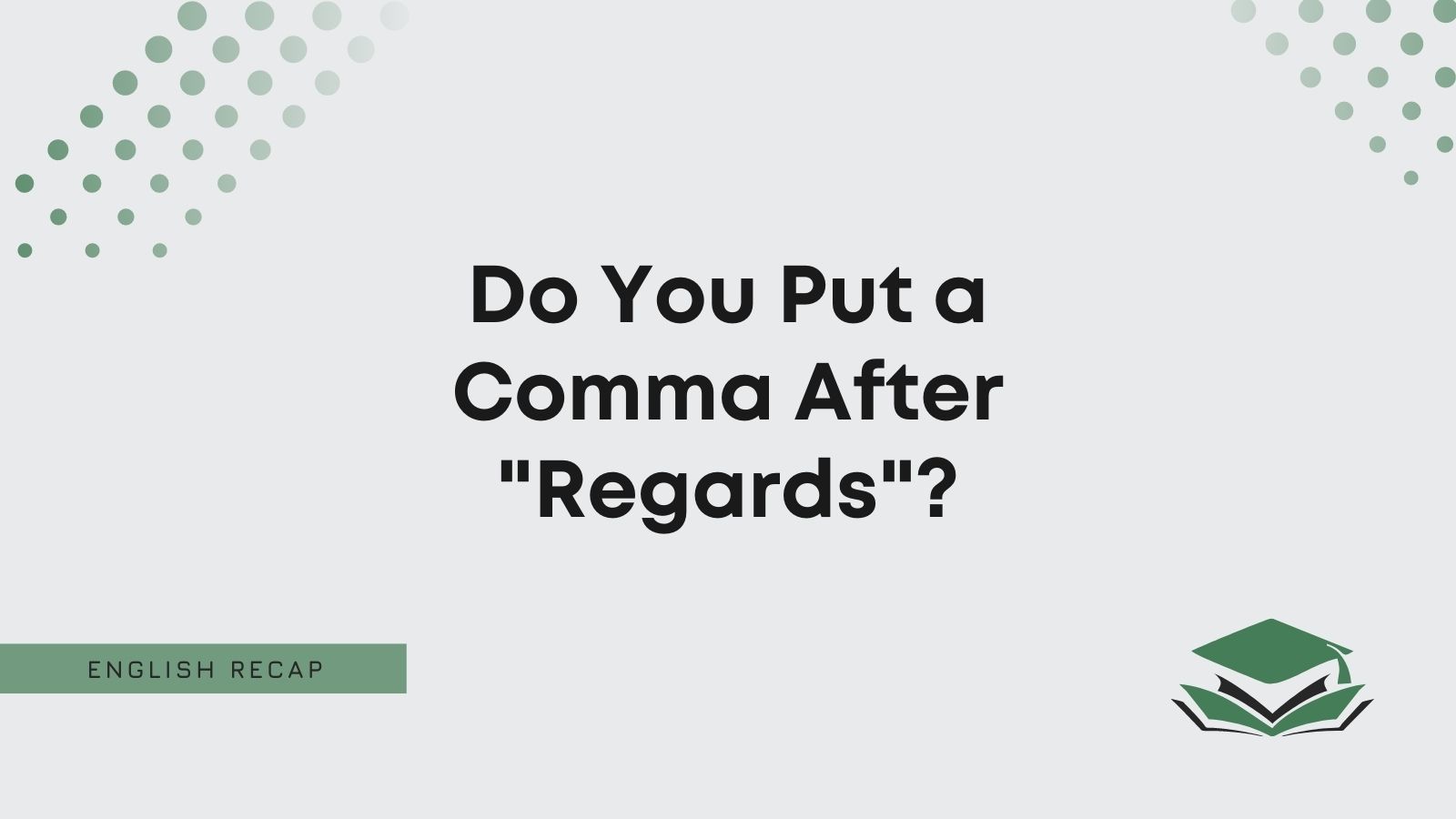Rule 1: Put a comma after “regards” when you use it alone for closing an email.
- Correct:
- Best regards,
- Stephen
- Incorrect:
- Best regards
- Stephen
Rule 2: You should always put a comma after “regards” when it appears at the end of a clause.
- Correct: Give him my best regards, and I was hoping you could tell him I will be in touch soon.
- Incorrect: Give him my best regards and I was hoping you could tell him I will be in touch soon.
Rule 3: Do not put a comma with “regards” when it appears in the middle of a sentence and the word “to” follows it.
- Correct: Please give my regards to your family.
- Incorrect: Please give my regards, to your family.
Do you want to know more? Keep reading the rest of the article to learn more about how you should use commas with “regards.”
Rest assured that our examples will clear out any doubts you may have!
When to Use a Comma After “Regards”
If you want to know when to put a comma after “regards,” you should refer to Rule 1 and Rule 2.
Rule 1: Use a comma after “regards” when you use it as a single word, followed by a name or signature, to end a letter or email.
In British English, the terms “kind regards” and “best regards” are slightly more emphatic ways of ending a correspondence than simply using “regards.”
However, the comma rule functions the same for these variations.
This is how the end of a letter should look when you include “regards:”
- Kind regards,
- John Harrington
- Best regards,
- Peter Boothroyd
If you want to see an email example using “regards,” here you go:
Hello Team,
I hope this email finds you well.
Based on our recent discussions, there are a few changes we need to make.
I’ve attached the revised timeline for everyone’s reference. Please review it and let’s discuss any concerns in our team meeting tomorrow.
Thanks for your understanding and continued hard work on this project.
Regards,
Ben Simons
One last note is that on letters, a written signature is often added in addition to the printed name.
Rule 2: Use a comma after “regards” when it is the final word in a clause.
In these circumstances, conjunctions such as “and/but/or” usually follow the word “regards.”
- Please give John my regards, and could you ask him what time we should meet on Friday?
- I am sending my best regards, but I don’t think you will read this message before your birthday.
An exception to this rule is when the second clause is dependent. On these occasions, it is not necessary for you to put a comma after “regards.”
- Please give your family my best regards and tell them I will see them soon.
When to Avoid a Comma After “Regards”
Rule 3 explains when you shouldn’t be using a comma after the word “regards.”
Rule 3: You shouldn’t use a comma after “regards” when you insert it in the middle of a sentence.
Usually, the word “to” follows “regards” mid-sentence to indicate to whom you are sending the regards.
Here are some example sentences that you can review to understand more about when you exclude the comma:
- Could you give my regards to your parents?
- She sends her warm regards to you and everyone at the company.
- Next time you see him, please pass on my regards to your brother.
- She was in a hurry, so she asked me to convey her regards to the team.
- When you meet them at the conference, extend my regards to our overseas clients.
- He couldn’t come to the phone but left his regards to your family.
- At the end of our call, she wanted me to relay her regards to the entire committee.
- I bumped into Jane yesterday, and she asked me to give her regards to you.
So, just remember that if “regards” is followed by the word “to,” you should never include a comma.
That’s all you need to know. Have a look at our conclusion that sums up all the rules.
Conclusion
When you use “regards” at the end of an email or letter, and a name follows it, you should put a comma. In contrast, when you use “regards” in the middle of a sentence, you should not put a comma unless it is the final word in a clause.

